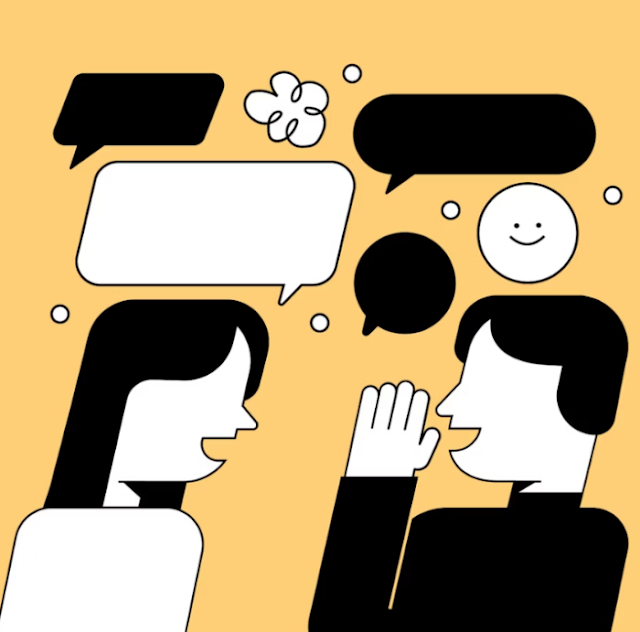I remember it like it was yesterday. I was at a networking event, drink in hand, stuck in a conversation that was going absolutely nowhere. We’d covered the weather, the traffic, and the questionable quality of the free appetizers. Then… silence. That dreaded, awkward void. We both just kind of smiled and nodded until one of us could make a polite escape. Sound familiar? For years, I thought being a good conversationalist was some kind of magic trick you were either born with or not. But I’ve learned that’s totally not true. It’s a skill, and like any skill, you can learn it. I’m going to share with you the strategies that genuinely transformed how I talk to people, taking me from awkward nodder to someone who actually loves meeting and connecting with others. 😊
1. Ditch the Script: The Big Myth of the Perfect Icebreaker 🧊
Okay, let’s get real. How many times have you asked, “So, have you had dinner yet?” or “Was it hard to find this place?” Do you *really* care about their commute or their last meal? Probably not. We ask these questions because we think we’re supposed to. We think we need an “icebreaker” to soften the mood.
But here’s a little secret I’ve learned: it’s okay to just let it be a little awkward at first. Especially if you’re meeting for a professional reason. You don’t need to force a connection over trivial things. The person you’re talking to knows you’re not genuinely curious about their dinner plans. It can almost feel a little… inauthentic, right?
Instead of trying to break the ice, just try to be warm. A genuine smile and a simple, “It’s so great to meet you, I’ve been looking forward to this,” is a thousand times more effective than a scripted, hollow question. The goal isn’t to trick someone into being your best friend in five minutes. It’s to be present and show you’re happy to be there. Authenticity is the real key.
2. Unleash Your Inner Detective: The Power of Genuine Curiosity 🕵️♂️
Remember when we were kids? We were curiosity machines. “Why is the sky blue?” “Where do dogs go when they sleep?” We weren’t afraid to ask anything. But somewhere along the line, we start to fear that asking questions makes us look stupid or intrusive. We start thinking things over in our heads and just… stay quiet.
Truly great conversationalists never lost that curiosity. They aren’t afraid to ask. They understand that people who give short, clipped answers often aren’t trying to be rude. They just literally don’t know what to say or where to start.
A Real-Life Example 📝
I ran into this with my own nephew a while back. I asked him, “So, is school fun?” and got the classic teenage response: “It’s whatever.” End of conversation, right? Wrong. I got curious.
- My next question: “What time do you usually head to school? I hear the bell rings at 9.”
- His answer: “Oh, I get there at 7.”
- Me, genuinely surprised: “Whoa, 7 AM? You’re an early bird! What are you doing at school so early?”
- Him, opening up: “I play badminton with my friends before class.”
Suddenly, we weren’t talking about “school,” we were talking about badminton. His whole demeanor changed. He was passionate! The conversation just flowed from there. He wasn’t trying to be difficult; the first question was just too broad. He didn’t know where to start.
When you sense someone is struggling to answer, make it easier for them. Give them options or explain your intent.
If my nephew had still been hesitant, I would have offered him some options. For example: “Oh, badminton! That’s awesome. What’s the best part? Is it the feeling of winning a tough match, the fun of just playing with your friends, or that feeling of accomplishment after practice?” By giving him a multiple-choice question, I’m taking the pressure off him to formulate a perfect answer from scratch.
3. It’s Not About You: The Selfless Art of Conversation ❤️
This was a tough pill for me to swallow. So many of our conversations are secretly about ourselves. We’re not trying to learn about the other person; we’re trying to see if they fit into *our* world, if they align with *our* interests.
I was watching a dating show the other day, and a guy asked a girl, “Do you like luxury brands?” Now, he wasn’t really asking about her taste in fashion. He was asking because he *dislikes* them, and he was hoping she’d say the same thing. He was holding up a mirror, not opening a window. That’s a “me-centered” question.
Truly special conversation happens when you temporarily erase yourself from the equation. Stop worrying about whether you have things in common and just become fascinated by them as an individual. When you do that, your questions become completely different.
| “Me-Centered” Question | “Other-Centered” Question |
|---|---|
| “Oh, you run? I’m trying to get into that. What brand of shoes do you recommend?” (About my potential hobby) | “What is it about running that you love? What goes through your mind when you’re on a long run?” (About their passion) |
| “You like that band? I saw them in concert once.” (Shifting focus to my experience) | “That’s a cool band. How did you first get into their music?” (About their journey) |
When your curiosity is aimed squarely at the other person, the questions become so much more unique and powerful. You’ll gain a friend and improve your conversation skills at the same time.
4. Listen to Hear, Not to Judge 🎧
There’s a huge difference between hearing words and truly listening. Often, we’re guilty of “judgmental listening.” We hear a piece of information and immediately file it away, making an assumption about the person.
Let’s say you ask, “What have you been up to lately?” and they say, “I’ve actually been learning Spanish.”
The judgmental listener thinks, “Ah, a traveler. Adventurous type. Probably wants to backpack through South America.” And once that judgment is made, the curiosity dies. You think you have them figured out, so you stop asking questions.
But what if you didn’t judge? What if you just asked… “Why?”
“Why Spanish?” you might ask. And they might say, “Well, I have this lifelong dream of retiring and living in the south of Spain.” Whoa. That’s not just a hobby; that’s a *dream*. Now you can ask, “The south of Spain? That’s amazing! Which part? What is it about that region that calls to you?”
The moment you make a judgment or an assumption, you kill the conversation. Resist the urge to label people. Your internal monologue should be “That’s interesting, tell me more,” not “Okay, I’ve got this person figured out.”
When you stop trying to analyze and just listen with an open mind, you give people the space to tell you who they really are. You’ll be amazed at what you learn.
📋 Quick Summary
Authentic warmth beats a scripted, hollow question every time. It’s okay to just be happy to meet them.
Ask “why” and dig deeper. Short answers often mean they don’t know what to say, not that they don’t want to talk.
Temporarily erase yourself. Shift from “Do you fit in my world?” to “Tell me about your world.”
Don’t listen just to categorize someone. Listen to understand their story, their dreams, and their passions.
5. Gracefully Accept Compliments 🙏
Someone says, “Wow, you gave an amazing presentation!” What’s our first instinct? “Oh no, it was nothing. I was so nervous, I was totally rambling.” We diminish our own work out of a misplaced sense of humility.
Let’s redefine humility. Humility isn’t about putting yourself down; it’s about lifting others up. When you deflect a compliment, you’re indirectly making the other person’s judgment feel invalid. Instead, try “confident humility.”
- Acknowledge and Share Credit: “Thank you so much! I couldn’t have done it without the amazing team I have. Their work was the real star.”
- Acknowledge and Show Gratitude: “Wow, thank you. That means so much, especially coming from you. I’m so glad you enjoyed it.”
- Acknowledge their Insight: “Thank you for saying that. I really appreciate you listening so closely. You have a great eye for detail.”
Accepting a compliment gracefully doesn’t make you arrogant. It shows you value your own work and, more importantly, that you value their opinion.
The Real Secret: It All Starts with a Shift in Mindset ❤️
I used to be a very sharp, competitive person. I felt like every interaction had a winner and a loser. My words were my armor and my weapons. And while I may have “won” arguments, I was also kind of lonely and, if I’m being honest, not that happy.
The biggest change for me came from a simple, profound realization: in 100 years, none of us will be here. This life is so short and so precious. That person who cut you off in traffic, the coworker who is always stressed out, the quiet person at the party—they are all special. They all have a story.
When you start to approach every person with a sense of wonder and, dare I say it, a kind of love, everything changes. When someone is being difficult or snappy, your first thought isn’t “what’s their problem?” but rather “I wonder what they’re going through?” This deep sense of empathy is the foundation for all great communication. It allows you to see the world and the people in it with more warmth, more kindness, and without prejudice.
Frequently Asked Questions ❓
I genuinely believe that becoming a better conversationalist makes the world a kinder, more connected place. What are your thoughts or your own go-to conversation tips? Share them in the comments below! I’d love to hear from you. 😊





